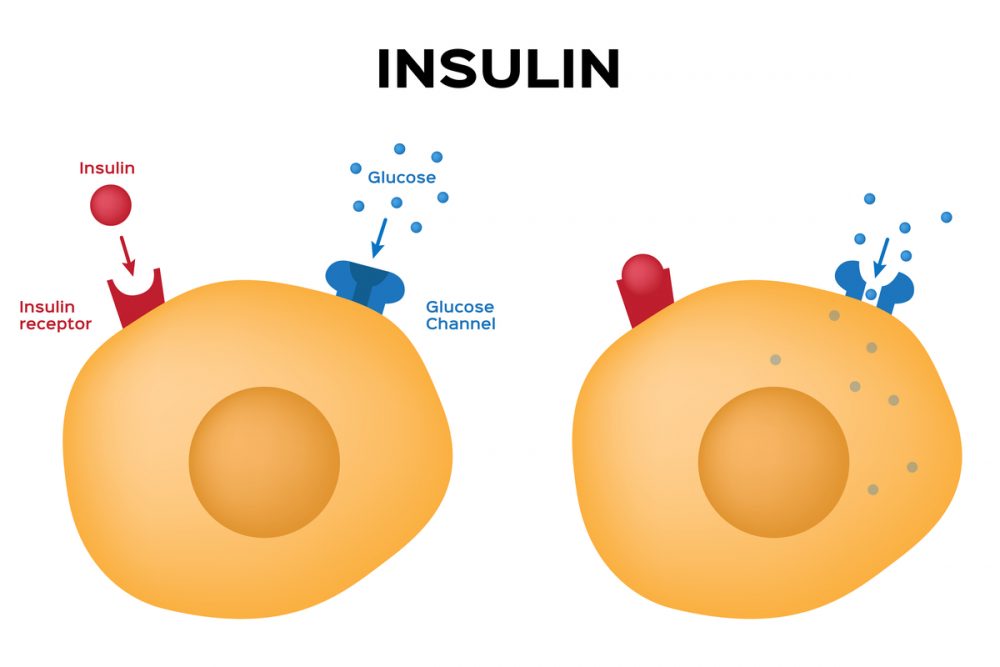Insulin resistance is a silent condition that affects millions of people worldwide. It often develops unnoticed, yet its consequences can be severe. If left unaddressed, insulin resistance can pave the way for prediabetes, type 2 diabetes, heart disease, and numerous other health challenges.
While insulin resistance may sound daunting, the key to overcoming it lies in understanding your risk factors and recognizing early warning signs. Let’s dive into a quick quiz to help you assess whether your body might be struggling with insulin resistance.
Answer these questions honestly to evaluate your risk:
- Do you have stubborn belly fat that’s hard to lose?
Excess abdominal fat is one of the most prominent indicators of insulin resistance. When insulin isn’t functioning properly, the body struggles to burn fat efficiently, leading to an accumulation around the midsection. - Do you have a family history of heart disease?
Family history can increase your likelihood of developing conditions like insulin resistance, as genetic factors play a role in how your body processes insulin. - Do you notice darkened patches of skin or unusual skin pigmentation?
A condition called acanthosis nigricans, characterized by dark, velvety patches of skin around the neck, armpits, or other areas, is often linked to insulin resistance. - Do you experience erectile dysfunction?
For men, insulin resistance can interfere with blood flow and hormonal regulation, contributing to erectile dysfunction. - Do you have high triglycerides or cholesterol?
Elevated triglycerides and low levels of HDL (the “good” cholesterol) are commonly associated with insulin resistance and metabolic syndrome. - Do you struggle with high blood pressure?
Insulin resistance can cause your blood vessels to become less elastic, leading to hypertension. - As a woman, do you have Polycystic Ovary Syndrome (PCOS)?
PCOS is a hormonal imbalance frequently linked to insulin resistance. Women with PCOS often experience irregular periods, excess hair growth, and weight gain.
Understanding the Signs

If you answered “yes” to one or more of these questions, your body might be signaling a problem with how it processes insulin. Insulin resistance doesn’t just affect blood sugar levels—it has widespread implications for your heart health, hormone balance, and metabolic function.
What Is Insulin Resistance?

Insulin is a hormone produced by the pancreas that helps regulate blood sugar levels. It works by signaling your cells to absorb glucose from your bloodstream and use it for energy or store it for later use.
When you’re insulin resistant, your cells stop responding effectively to insulin. This forces your pancreas to produce more and more insulin to keep your blood sugar levels in check. Over time, this constant demand on your pancreas can lead to elevated insulin levels, chronic inflammation, and eventually, prediabetes or type 2 diabetes.
To learn more about insulin and its affects on the body, read here.
How Insulin Resistance Impacts Your Health

1. Weight Gain and Fatigue
One of the earliest and most noticeable symptoms of insulin resistance is weight gain, particularly around the belly. Additionally, insulin resistance can make it difficult for your body to convert food into energy, leaving you feeling tired and sluggish.
2. Hormonal Imbalances
For women, insulin resistance can contribute to PCOS, a condition marked by irregular periods, infertility, and excess hair growth. In men, it can disrupt testosterone levels and lead to erectile dysfunction.
3. Cardiovascular Risks
High blood pressure, elevated cholesterol, and increased triglycerides are all byproducts of insulin resistance. Together, these factors significantly raise your risk of developing heart disease.
4. Skin Changes
Dark patches of skin, known as acanthosis nigricans, are a visual warning sign of insulin resistance. Skin tags may also appear on the neck or armpits.
5. Increased Risk of Chronic Diseases
Unchecked insulin resistance can lead to serious health conditions such as type 2 diabetes, kidney disease, and non-alcoholic fatty liver disease.
How to Address Insulin Resistance

1. Adopt a Balanced Diet
A diet rich in whole foods like vegetables, lean proteins, healthy fats, and low-glycemic carbohydrates can improve insulin sensitivity. Avoid processed foods, sugary snacks, and refined carbs, as they can spike blood sugar levels and worsen insulin resistance.
2. Stay Active
Regular physical activity is one of the most effective ways to improve your body’s sensitivity to insulin. Aim for at least 30 minutes of moderate exercise, such as brisk walking, strength training, or cycling, most days of the week.
3. Manage Stress
Chronic stress can lead to elevated cortisol levels, which worsen insulin resistance. Incorporate stress-reducing activities like yoga, meditation, or deep breathing exercises into your daily routine.
4. Prioritize Sleep
Sleep deprivation can contribute to insulin resistance and disrupt hormone regulation. Strive for 7-9 hours of quality sleep each night to support your body’s repair and recovery processes.
5. Consider Supplements
Certain supplements, such as magnesium, chromium, and omega-3 fatty acids, have been shown to improve insulin sensitivity. Consult with a healthcare professional to determine the best options for your needs.
6. Intermittent Fasting
This is a very popular one and beyond dietary changes, there are additional ways to support your health, like incorporating Intermittent Fasting. For more details, check out my article on “How Intermittent Fasting Helps You Lose Weight: A Complete Guide.” for insights on how to enhance insulin sensitivity.
Why Early Intervention Matters

The earlier you recognize and address insulin resistance, the better your chances of reversing it and avoiding its long-term consequences. Studies have shown that lifestyle changes, particularly in diet and exercise, can significantly improve insulin sensitivity and reduce the risk of chronic diseases.
Empowering Yourself with Knowledge

Understanding your risk for insulin resistance is a powerful first step toward taking control of your health. If this quiz has raised concerns for you, consider reaching out to a healthcare provider for further evaluation and guidance.
What’s Next?

If you’re ready to take action, don’t wait. Early intervention is the key to reversing insulin resistance and living a healthier, more vibrant life.
One powerful strategy to tackle insulin resistance is intermittent fasting, which can help regulate your blood sugar levels and reduce belly fat. To learn more about how this approach works and how it can help you shed weight effectively, read our blog: How Intermittent Fasting Helps You Lose Weight: A Complete Guide.



